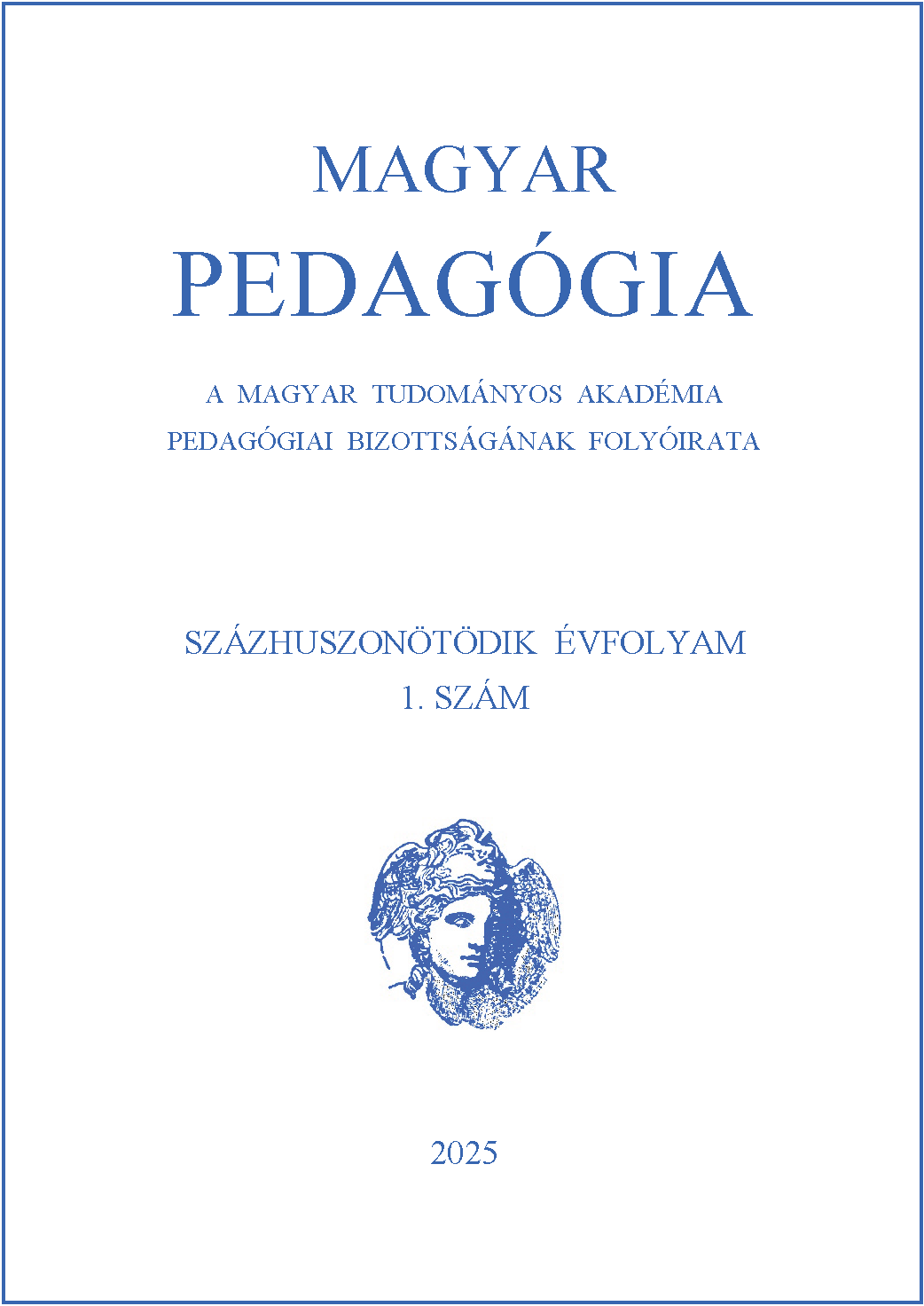WHAT MUSIC ATTITUDES DO STUDENTS BRING TO THEIR HIGH SCHOOL EDUCATION?
Main Article Content
Abstract
The current research aims to explore the challenges and circumstances surrounding high school singing and music education. A total of 427 4th- and 6th-grade students participated in a questionnaire survey. The purpose of the research is to uncover the musical experiences and attitudes of students as they transition from elementary to high school. The results indicated that students in elementary school preferred subjects such as foreign languages, history, mathematics, and chemistry, while they expressed negative or indifferent feelings towards music classes (Mean = 3.18). Additionally, it was found that the music teachers often changed during elementary school; in some cases, students received instruction from 7 to 8 different music teachers. In the lower grades, music lessons often involved group singing and rhythmic skill development tasks. However, in the upper grades, students reported that singing activities were frequently not prioritized. Students found that singing across a wider vocal range and accurately recognizing and producing pitches were the most challenging aspects of music classes. In contrast, their rhythmic skills were generally assessed positively. To improve their overall experience in music classes, most students called for a modernization of the curriculum, including listening to music and studying popular music in class.
Downloads
Article Details
References
A Kormány 5/2020. (I. 31.) Korm. rendelete a Nemzeti alaptanterv kiadásáról, bevezetéséről és alkalmazásáról szóló 110/2012. (VI. 4.) Korm. rendelet módosításáról (2020). Magyar Közlöny, 17. sz. 2020. január 31. https://www.kozlonyok.hu/nkonline/MKPDF/hiteles/mk20017.pdf Letöltés dátuma: 2025. 01. 11.
Csíkos, Cs. (2012). Melyik a kedvenc tantárgyad? Tantárgyi attitűdök vizsgálata a nyíltvégű írásbeli kikérdezés módszerével. Iskolakultúra, 22(1), 3-13.
Dohány, G. (2014). Háttérváltozók és a zenei műveltség összefüggéseinek vizsgálata középiskolások körében. Magyar Pedagógia, 114(2), 91−114.
Erős, I. (1993). Zenei alapképesség. Akadémiai Kiadó, Budapest.
Hercz, M. (2005). Pedagógusok szakember- és gyermekképe: gondolatok a kognitív fejlődésről vallott nézetek megismerése közben. Magyar Pedagógia, 105(2), 153–184. Elérés forrás https://www.magyarpedagogia.hu/index.php/magyarpedagogia/article/view/341
Janurik, M. (2007). Áramlatélmény az iskolai ének-zeneórákon. Magyar Pedagógia, 107(4), 295–320.
Kovács, K., Szabó, N., Józsa, K., & Janurik, M. (2024). Az éneklési képesség keresztmetszeti vizsgálata általános iskolás tanulók körében. Magyar Pedagógia, 124(2), 111–142. https://doi.org/10.14232/mped.2024.2.111
McPherson, G. E. (2008). The role of parents in children’s musical development. Psychology of Music, 37(1), 91−110.
McPherson, G. E. & Hendricks, K. S. (2010). Students’ motivation to study music: The United States of America. Research Studies in Music Education, 32(2) 201−213.
doi: 10.1177/1321103X10384200
McPherson, G. E. & O’Neill, S. A. (2010): Students’ motivation to study music as compared to other school subjects: A comparison of eight countries. Research Studies in Music Education, 32(2), 101-137. doi:10.1177/1321103X10384202
McPherson, G. E., Osborne M. S., Barrett M. S., Davidson, J.W., & Faulkner R. (2015). Motivation to study music in Australian schools: The impact of music learning, gender, and socio-economic status. Research Studies in Music Education, 37(2), 141−160. doi:10.1177/1321103X15600914
Leung, B. W. & McPherson, G. E. (2010). Students’ motivation in studying music: The Hong Kong context. Research Studies in Music Education, 32(2), 155−168.
Portowitz, A., González-Moreno, P. A., & Hendricks, K. S. (2010). Students’ motivation to study music: Israel. Research Studies in Music Education, 32(2) 169−184. doi: 10.1177/1321103X10385049
Seog, M., Hendricks, K. S., & González-Moreno, P. A. (2011). Students’ motication to study music: The South Korean context. Research Studies in Music Education, 33(1), 89−104. doi: www.doi.org/10.1177/1321103X11400514
Turmezeyné Heller, E., Máth, J., & Balogh, L. (2005). Zenei képességek és iskolai fejlesztés. Magyar Pedagógia, 105(2), 207–236. Elérés forrás https://magyarpedagogia.hu/index.php/magyarpedagogia/article/view/338
Tossavainen, T. és Juvonen, A. (2015). Finnish primary and secondary school students' interest in music and mathematics relating to enjoyment of the subject and perception of the importance and usefulness of the subject. Research Studies in Music Education 37(1) 107−121. doi:10.1177/1321103X15589259
Varga, J. (2023). A pedagógushiány területi különbségei. Educatio 32 (1), 107–120.
Váradi, J. és Józsa, G. (2024). Az alapfokú zeneoktatás jellemzői virtuális térben a Covid-19 ideje alatt: A kutatás bemutatása. (2024). Képzés és Gyakorlat : Neveléstudományi folyóirat, 22(1), 7-18. https://doi.org/10.17165/tp.2024.1.7-18
Xie, J. & Leung, B. W. (2011). Students’ motication to study music: The mainland China context. Research Studies in Music Education, 33(1) 59−72. doi: 10.1177/1321103X11404654

